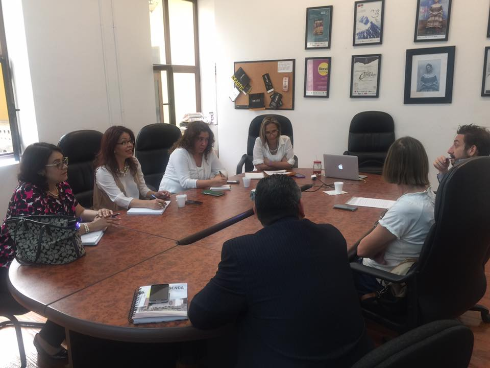The COVID-19 crisis has abruptly put the arts and culture in a very vulnerable spot. At the same time it has forced the culture sector to rethink and to become even more creative. One of these innovative solutions have been supported by the SDC in Honduras – it is a platform that seeks not only to support artists, but also to reach out to a rural audience.
A highly limited social life, the home office, a total curfew or the mask as a steady companion in the public - the COVID-19 crisis has completely changed our habits and routines. Obviously, these are extremely difficult conditions for the artistic sector and its vulnerability became abruptly tangible when the pandemic hit the world some months ago. Festivals, concerts, theatres and many other cultural activities have been cancelled or postponed and as a result many artists and other employees in the creative world have become dependent on financial support.
New possibilities
But there is the other side of the coin: being limited in possibilities and prevented in working the usual way, new possibilities and a courage to experiment has emerged. The artistic sector is by nature creative and innovative and hence many theatres, concert organizers, museums, and cinemas have discovered new opportunities in the virtual world. When the Team Culture and Development at the SDC HQ in Bern asked the Community of Practice Culture Matters whether they adapted, changed or even created new cultural projects during COVID-19 many reported to have transferred activities to the virtual world and to have come up with possibilities to gather an audience via different social media.

The SDC and MUA discussing the project.
Supporting artists with a solidarity platform
Honduras is one example of a SDC partner country, where a new culture project emerged during the lockdown. The country has declared a state of emergency: the public life is very limited and the population is still under partial curfew. The official cultural support in Honduras is rather low and if culture is supported it is mostly mainstream culture. No surprise the current conditions make it hard for independent artists to gain money and have an audience.
An opportunity to support cultural actors in the country arose with an initiative of the “Committee of Cultural Centers" (Commite Centro culturales, CCC) which is a network of cultural organizations. They initiated the idea to create the "Platform for Artistic and Solidarity Action" (“Plataforma de Acción Artística y Solidaria", PAAS), which shall provide a Solidarity Income Fund (ISE) for artists and cultural actors. The "Women in the Arts Association" (“Asociación Mujeres en las Artes", MUA) is holding the chairmanship of the Committee and is now leading the platform. The SDC and the MUA signed a six-month cooperation agreement on June 5, 2020.
The main
idea is simple: artists and cultural actors can provide virtual artistic products
or performances for which they generate income via the platform. Additionally
the users can donate money to the artists. This also includes other employees
working in the culture sector and being impacted by the financial losses due to
COVID-19 like stage designers, lighting technicians, or sound technicians.
Additionally, the platform offers tips and tricks for artists on how they can
make the best out of their performance on the platform, like e.g. an
instruction on how a short and attractive video can best be produced. The
platform will soon go online, in the meantime MUA is using other social
networks. The platform is at the moment receiving support of two technical
firms. The same firms also ensure that the platform can exist for another year
after the SDC support.
Broader audience and inclusion of rural areas
Exceptional
about this platform is that it takes into account that rural, confined or
socially distanced areas might not have access to the internet. This is a
general problem for culture projects that go virtual. Even if some people have
a smartphone, their data is often not sufficient in order to stream the
cultural content. So the platform has chosen to disperse micro-concerts, poetry
recitals or narratives via the country’s Community Radio Network, the so called
“Radios Communitarias”. Like that it kills two birds with one stone: the artists
receive a broader audience and the culture becomes more inclusive by reaching
more people. Who knows, maybe this pandemic is able to teach us a few things
that are adaptable also in a post-corona world.
Thank you for the inputs on the project to Chantal Felder and Mayra Espinoza, responsibles for Culture at the SDC in Honduras
